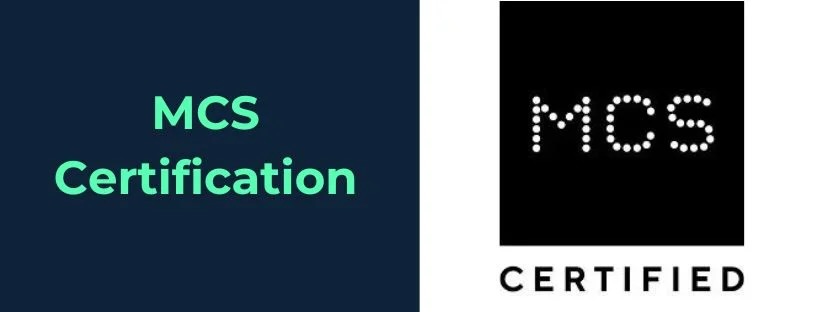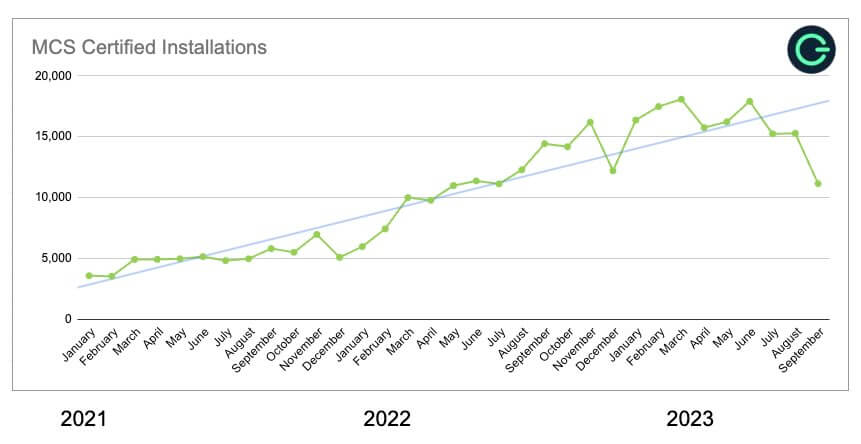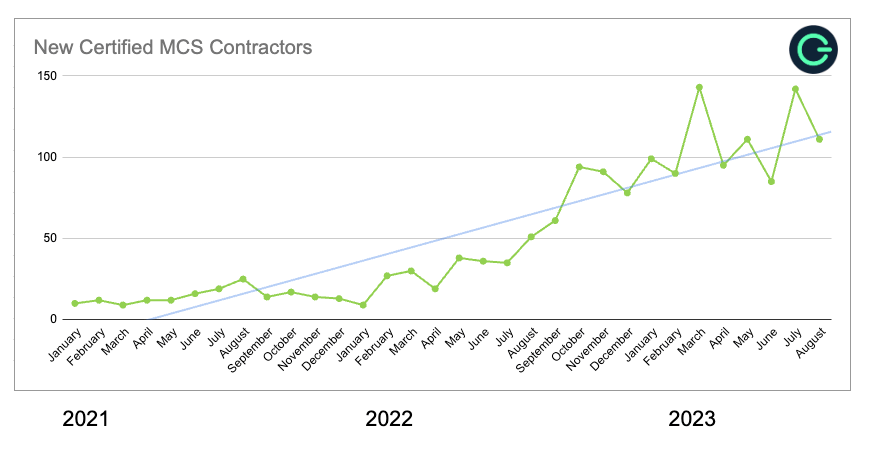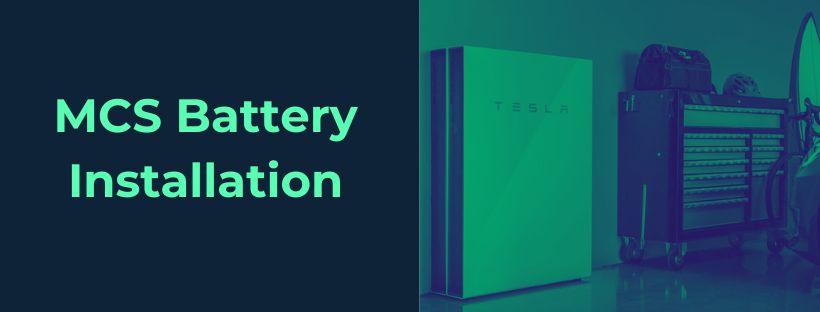
Ever heard of Microgeneration Certification Scheme (MCS)?
If not, let me enlighten you, my friend.
The MCS is a big shot – a globally acknowledged mark of quality, acting as a catalyst in endorsing renewable energy sources (talk about being eco-friendly!).
Now, the spotlight's on the smaller players - low-carbon technologies that focus on heat and electricity generation.
Believe it or not, we Brits are pretty ahead of the curve. According to Department for Business, Energy & Industrial Strategy, as of 2021, over 6% of UK households were equipped with low-carbon heating technologies. Cool, eh?!
The MCS has been smashing it in 2023, notching up more than 1,700 new recruits earning their certifications within a span of 11 months, would you believe it? That's a stonking 70% increase in the roster since the close of last year. And you know what else? The number who've signed up for MCS in this year alone outnumbers the intake for the last six years combined.

The Microgeneration Certification Scheme (MCS) sets a high bar for installation companies and products involved in microgeneration, encompassing the whole wide world of renewable energy technologies - solar panels, wind turbines, heat pumps, you name it. Reassuring, isn't it?
It’s like a quality stamp that ensures that your instals meet the stiffest standards of the industry. In 2023 so far, the MCS issued a whopping 143,562 certificates for installations in the UK (source: MCS Dashboard).
So, if you're mulling over, unsure about whether to take the plunge into renewable energy, an MCS certification provides that boost of confidence that your chosen system won't let you down.

Think of the Microgeneration Certification Scheme (MCS) as your trusty, reliable friend in the world of microgeneration technologies— providing that much-needed seal of approval.
Picture it, if you're a business or individual keen to grab hold of those tempting financial incentives, it's MCS that gives you the green light.
Plus, for consumers, having that MCS stamp means you can sleep easy, knowing professionals carrying out installations aren't just winging it with knock-off equipment.
Instead, they're completely clued up and using solar panel kit that's got the thumbs up. Isn't that reassuring?
Solar panel installations have gained immense popularity in recent years as a renewable energy solution. Not only do they help reduce carbon emissions and combat climate change, but they also offer significant financial benefits to homeowners.
If you were to ask me, "Why the blazes should I choose an installer who's MCS-certified?" I'd tell you exactly why. It's dead simple really. Opting for an MCS-accredited chap (or chapette) offers not just a semblance, but actual heaping buckets of peace of mind. And here's why:
First off, they ensure your shiny new solar panel installation sticks to all the required regulations and safety jazz, so no unwanted surprises for you.
Moreover, the gear they use is top-notch. And when I say top-notch, I'm talking about stuff that meets the highest performance standards. No cheap knock-offs here, mate.
And of course, these installers aren't just any ol' Tom, Dick or Harry. These folks have been through the mill - fully trained and skilled to perfection for the job at hand.
Ever been tricked by inferior quality?
We've all been there. Here's the thing: solar panel installations are no different. The quality of the solar panels—from the supply chain to the final product—directly hits their performance.
The risks?
Inefficiency, safety hazards, and a system driven down by Father Time—all quicker than you can say 'solar.'
So, trust me when I tell you, you want your installations to be MCS-approved, from start to finish.
Leave the risks for the horror flicks and say 'Hello' to MCS-approved products and services!
When it comes to the design and installation process executed by our trusted MCS-accredited pros, rest assured, they stick to a hefty bunch of industry rules to guarantee top-notch results. Let's take a whistle-stop tour of the critical stages in this process, shall we?
Now, here comes the fun part: MCS-accredited experts roll up their sleeves, take a good look around your property, and work their magic to come up with the best solar panel system design just for you!
What's in their secret recipe, you're wondering?
Well, it's all about judging the lay of the land (or in this case, the tilt of your roof), figuring out your home's orientation, and checking how much room they've got to work with.
The qualified installers formulate a custom-made system design. This design not only syphons energy like there's no tomorrow, but it also tip-toes around the intimidating building regulations and sticks to the guidelines of our friend, the MCS.
Picking the right parts is a bit of a big deal, wouldn’t you say?
Well, those MCS-accredited installers feel just the same, hence their knack for selecting top-notch solar panels, inverters, and mounting systems among others, all to guarantee a reliable and efficient system.
A touch of quality control that your energy setup will thank you for.


Let's dive into why you'll reap awesome benefits when you choose MCS-accredited installers for your solar energy:
If you're on the hunt for MCS-accredited solar panel installers in the UK, you'd be hard-pressed not to stumble across a nifty little online platform called Glow Green.
Bridging the 4,000 mark in November 2023, the MCS (Microgeneration Certification Scheme) has charted a new high in its journey. MCS, a touchstone for renewable energy and heat, is an attestation to burgeoning consumer confidence in home-spun energy all across the UK. It's a telling sign of increasing national demand for MCS-accredited contractors.

The good folks at MCS (Microgeneration Certification Scheme) have made a bit of history themselves. They've brought our industry its first-ever framework dedicated to battery storage system installations. Come on, give them a round of applause, won't you?
Now, this brand new Battery Installation Standard, or MIS 3012, lays down the law for MCS accredited installers. Everything from supply, design, and installation of battery systems to Electrical Energy Storage Systems (EESS) from classes 1 through 4. 'Hang on, classes 1 through 4?' you ask. Well, brace yourself because we're headed to 'Technical Standards 101' here — and it covers systems up to a kaboom-worthy 50kW.
2020 was the year MCS thought they'd trial this scheme — with the help of a bunch of willing volunteer installers. They've paved the way for certification bodies to finally start accepting applications for certification. Let's toast to them, shall we?
MCS has cleverly categorised them into four classes, for this standard [1]:
MCS developed MIS 3012 with input from industry-leading bodies, including Tesla, Sonnen, Moixa, Powervault, AceOn Group, Solar Energy UK, and REA.
Sources: [1]

Glow Green is your trusty sidekick, linking folks up with MCS-certified solar panel installers across the UK.
Using Glow Green provides access to a [national network of MCS installers] and competitive quotes. Including a price match. They will not be beaten on price or service.
The process of using Glow Green is straightforward:
Glow Green beautifully streamlines the often mind-boggling task of searching for certified and trustworthy solar panel installers. It's a breath of fresh air, isn't it?
Glow Green provides an easy-peasy experience if you're on the hunt for MCS-certified solar panel installers in the UK.
This makes the journey towards green energy investments feel less like scaling Mount Everest and more like a walk in the park.
The MCS - or Microgeneration Certification Scheme - is the British gold standard when it comes to renewable energy technology. It's a nationally recognised quality assurance scheme proudly supported by the UK Department for Business, Energy and Industrial Strategy.
It essentially rubber-stamps products and installers for renewable energy, ensuring that they meet rigorous quality standards.
According to the latest numbers, there are over 4,000 MCS certified installers in the UK (as of November 2023), ensuring quality, efficient and sustainable energy solutions for countless Brits.
MCS, which is short for Microgeneration Certification Scheme, is a nationally recognised quality assurance scheme. Acting as a health check, MCS assesses and certifies microgeneration manufacturers and installers, ensuring they adhere to rigorous quality, performance, and safety standards.
According to UK data, in 2022, MCS has certified over 163,341 installations. By setting up quality and compliance standards, this scheme ensures that all certified solar equipment delivers value for money, demonstrating that even the smallest stuff can make the biggest differences.
An MCS certificate ensures that products and installation services meet consistent, rigorous and internationally recognised standards.
As of November 2023, there were over 4,000 UK installers certified under the MCS, striving to guarantee optimal efficiency and top-notch quality in renewable energy tech including solar panels.
MCS stands for Microgeneration Certification Scheme. It's a nationally recognised quality assurance scheme in the UK. The main goal? To safeguard you (yes, you!) and the rest of our 67 million Brits by ensuring solar panel systems and their installers meet rigorous standards.
An MCS certificate is not a mandatory or legal requirement in the UK. However, if you're looking to cash in from the Smart Export Guarantee (SEG) in the UK. Installations must be MCS certified. Essentially, without it, you're leaving the free money on the table!
So, MCS certification? We'd say it's vital for your solar panels.